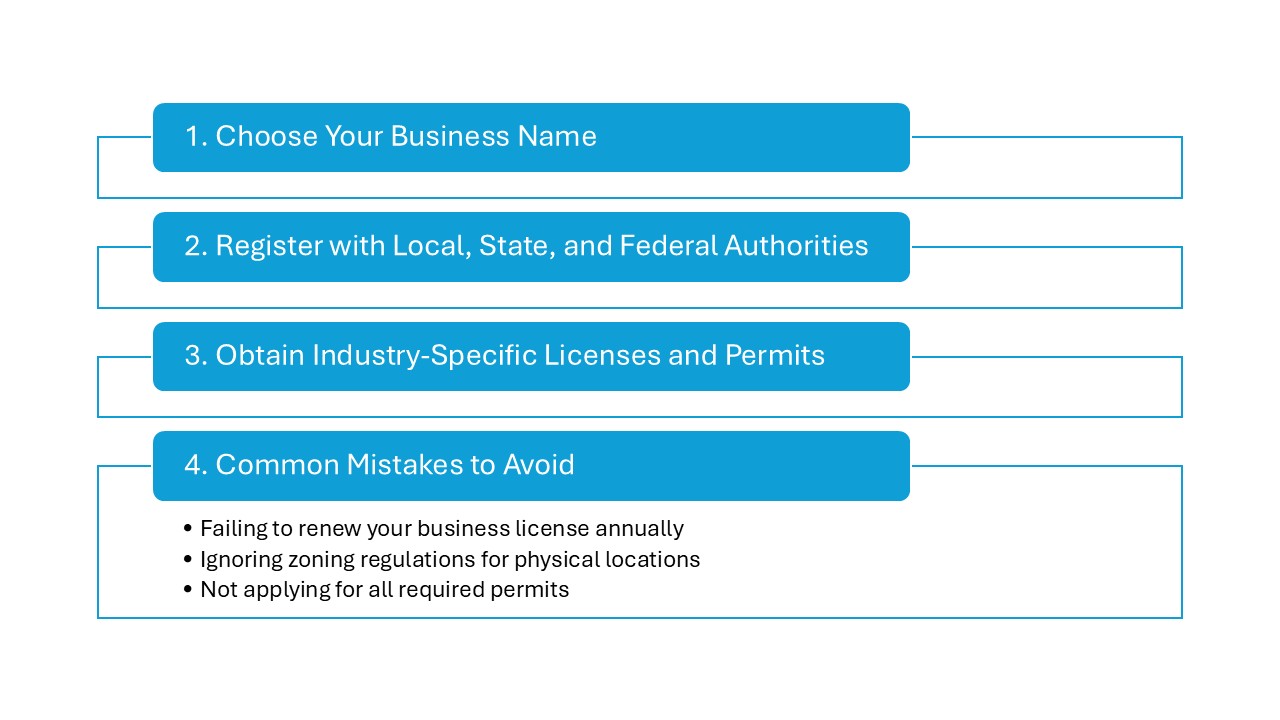Starting a business is exciting, but navigating legal requirements is crucial for long-term success. For women entrepreneurs, understanding business registration, licenses, tax obligations, and funding regulations is key to avoiding legal pitfalls.
In 2026, laws continue to evolve to support women-owned businesses, offering grants, certifications, and funding opportunities. Whether launching a startup or scaling an existing business, knowing these legal essentials will help you stay compliant and thrive.
Let’s break down the key legal requirements every woman entrepreneur must know!
Choosing the Right Business Structure for Women Entrepreneurs
One of the first decisions you’ll make as a woman entrepreneur is selecting the right business structure. Your choice affects everything from taxes and liability protection to how you raise capital and manage your business.
Business Structures Overview
| Business Structure | Pros | Cons |
| Sole Proprietorship | – Simple to set up – Complete control – Easy tax filing | – Unlimited personal liability – Harder to raise capital – Less business credibility |
| Limited Liability Company (LLC) | – Protects personal assets – Flexible tax options – Easier to raise capital | – More paperwork than a sole proprietorship – Some state fees |
| Corporation | – Strongest liability protection – Easier to attract investors – Perpetual existence | – Complex to set up – Double taxation (C-corp) – High operating costs |
| Partnership | – Shared responsibilities – Easy to form – Combined expertise | – Shared liability – Potential conflicts – More complex tax filings |
Tax Implications and Liability Protection
Choosing between these structures can significantly impact your business taxes. An LLC, for instance, offers flexibility in how it’s taxed, while a corporation faces potential double taxation. Liability protection is also key, an LLC or corporation shields your personal assets from business debts, whereas a sole proprietorship or partnership does not.
How to Register Your Business in 2026
In 2026, registering your business depends on your location and chosen structure. Generally, you’ll need to:
- Choose your business name and check for availability.
- File the appropriate paperwork with the state (e.g., Articles of Incorporation for corporations or Articles of Organization for LLCs).
- Obtain an Employer Identification Number (EIN) from the IRS.
- Apply for any necessary business licenses or permits.
Once registered, you’ll be ready to operate legally and take advantage of the benefits each business structure offers.
Business Registration and Licensing Made Simple
Registering your business legally is crucial to avoid fines or legal complications. Follow these essential steps:

1. Choose Your Business Name
Ensure your business name is unique and complies with state guidelines.
2. Register with Local, State, and Federal Authorities
- Local: Register with your local government for a business license.
- State: Register with the state for a state business license (if required) and tax ID number.
- Federal: Obtain an Employer Identification Number (EIN) from the IRS.
3. Obtain Industry-Specific Licenses and Permits
Some businesses need specific licenses, such as:
- Food businesses: Health department permits, food handling licenses.
- E-commerce: Sales tax permits, business registration.
- Consulting: Professional certifications or state-specific business licenses.
4. Common Mistakes to Avoid
- Failing to renew your business license annually.
- Ignoring zoning regulations for physical locations.
- Not applying for all required permits, depending on your industry.
By following the registration and licensing steps carefully, you ensure your business operates smoothly and legally.
Understanding Tax Obligations and Financial Compliance
As a woman entrepreneur, understanding your tax obligations is crucial to ensure financial compliance and take advantage of available deductions. Here’s what you need to know:

Federal, State, and Local Taxes for Small Businesses
- Federal: Pay federal income tax, self-employment tax, and possibly payroll taxes if you have employees.
- State: Each state has its own tax requirements, including state income tax and sales tax.
- Local: Some cities or counties require business licenses and impose local taxes (e.g., business tax).
Tax Benefits and Deductions for Women-Owned Businesses
- Startup Costs: Deduct up to $5,000 in startup expenses in your first year.
- Home Office Deduction: Deduct a portion of your home expenses if you work from home.
- Business Equipment: Deduct the cost of office supplies, equipment, and furniture.
Essential Bookkeeping and Accounting Tools
To manage your finances effectively, consider using these tools:
- QuickBooks: Comprehensive accounting software for invoicing, taxes, and reports.
- FreshBooks: Simplifies invoicing and accounting for freelancers and small businesses.
- Xero: Cloud-based accounting software ideal for managing finances, invoices, and expenses.
By staying on top of your tax obligations and using the right financial tools, you’ll ensure your business runs smoothly and legally.
Protecting Your Business with Contracts and Agreements
As a woman entrepreneur, ensuring that your business is legally protected through contracts and agreements is essential. Here’s how you can safeguard your business:

Must-Have Contracts
- Client Agreements: Define terms of service, payment schedules, and deliverables.
- Vendor Contracts: Clarify the terms of working with suppliers or contractors.
- Non-Disclosure Agreements (NDAs): Protect sensitive information and ideas when dealing with employees or external partners.
- Employment Contracts: Outline roles, responsibilities, compensation, and expectations with employees.
Importance of Trademarks, Copyrights, and Intellectual Property Protection
- Trademarks: Protect your business name, logo, and branding elements from being used without permission.
- Copyrights: Safeguard original content like articles, designs, and creative works.
- Intellectual Property: Ensure your products, services, and ideas are legally protected from duplication or infringement.
How to Create Legally Sound Agreements
- DIY Templates: There are many online resources for creating basic contracts, but they might not be tailored to your specific business needs.
- Hiring a Lawyer: For more complex agreements, especially if you’re entering high-stakes contracts, it’s often worth consulting a lawyer to ensure that your documents are airtight.
By utilizing these contracts and protecting your intellectual property, you can minimize legal risks and keep your business secure as it grows.
Employment Laws and Hiring Regulations Every Entrepreneur Should Know
Hiring employees comes with legal responsibilities. Understanding employment laws ensures compliance and protects your business from legal issues.
Employee Classification: W-2 vs. 1099
- W-2 Employees: Full-time or part-time workers entitled to benefits; taxes withheld by the employer.
- 1099 Contractors: Independent workers responsible for their own taxes; employers do not provide benefits.
Key Employment Laws to Follow
- Equal Pay Act: Ensures equal wages for men and women in similar roles.
- Anti-Discrimination Laws: Prohibit bias based on gender, race, age, or disability.
- Workplace Policies: Create clear guidelines on harassment, leave policies, and work conditions.
Best Practices for Hiring & Payroll
- Legally Compliant Job Descriptions: Avoid discriminatory language.
- Payroll & Taxes: Use tools like Gusto, ADP, or QuickBooks for tax compliance.
- Employee Benefits: Consider health insurance, retirement plans, and PTO to attract top talent.
Staying compliant with employment laws ensures a strong, legally protected business foundation while fostering a fair workplace.
Business Insurance and Risk Management Essentials
Protecting your business from financial and legal risks is crucial. The right insurance and risk management strategies help safeguard your assets and operations.
Types of Essential Business Insurance
- General Liability Insurance: Covers injuries, property damage, and legal claims.
- Professional Liability Insurance: Protects against negligence claims (ideal for consultants and service providers).
- Workers’ Compensation: Required if you have employees; covers workplace injuries.
- Product Liability Insurance: Essential for businesses selling physical products.
- Cyber Liability Insurance: Protects against data breaches and cyber threats.
Choosing the Right Insurance for Your Business
- Assess business risks (e.g., physical storefront vs. online business).
- Compare policies from providers like Hiscox, Next Insurance, or The Hartford.
- Ensure compliance with state and industry-specific insurance requirements.
Risk Management Strategies

- Implement contracts and legal agreements to reduce liability.
- Create workplace safety policies and cybersecurity protocols.
- Regularly review insurance coverage as your business scales.
Having proper insurance and risk management practices protects your business from unexpected financial losses, lawsuits, and operational disruptions.
Grants, Funding, and Government Compliance Tips
Accessing funding can accelerate business growth, but it requires understanding legal and compliance requirements.
Grants and Business Loans for Women Entrepreneurs
- Grants: Non-repayable funds (e.g., Amber Grant, IFundWomen, Cartier Women’s Initiative).
- Small Business Loans: Options from the Small Business Administration (SBA), banks, and microloan programs.
- Venture Capital & Angel Investors: Ideal for scalable startups but require equity exchange.
Government Programs Supporting Women-Owned Businesses
- SBA Women-Owned Small Business (WOSB) Certification: Helps access federal contracts.
- State & Local Grant Programs: Vary by region; check economic development offices.
- Tax Incentives & Credits: Some states offer benefits for women-owned businesses.
Compliance with Securing and Managing Funding
- Maintain accurate financial records for grant audits.
- Follow loan repayment terms to avoid penalties.
- Ensure transparency in financial reporting to meet investor and lender requirements.
Properly managing funding and staying compliant ensures long-term business stability and growth opportunities.
Legal Considerations for Online and E-Commerce Businesses
Running online business requires compliance with digital laws to protect both the business and its customers.
Essential Legal Policies for Online Businesses
- Terms & Conditions: Outlines website usage rules and liability disclaimers.
- Privacy Policy: Required by law to explain how user data is collected, stored, and used.
- Refund & Return Policies: Clearly state conditions for returns, refunds, and exchanges to avoid disputes.
Data Privacy Laws & Compliance in 2026
- GDPR (EU) & CCPA (California): Protect customer data and require consent for data collection.
- New Global Regulations: Stay updated on evolving laws governing online businesses and consumer rights.
- Best Cybersecurity Practices: Secure customer data with encryption and compliance-friendly tools.
Legal Aspects of Selling on Shopify, Amazon, and Etsy
- Follow platform-specific rules on product listings, customer policies, and fees.
- Ensure compliance with intellectual property laws to avoid copyright or trademark disputes.
- Be aware of sales tax collection requirements based on customer location.
Understanding and applying these legal considerations helps protect your business, avoid fines, and build customer trust.
Stay Compliant and Build a Thriving Woman-Owned Business
Navigating legal requirements is essential for the success and sustainability of any woman-owned business. From choosing the right business structure and securing funding to complying with tax laws and protecting intellectual property, legal compliance ensures stability and credibility.
Key Takeaways:
- Register your business properly and obtain necessary licenses.
- Understand tax obligations, employment laws, and insurance needs.
- Protect your business with contracts, trademarks, and privacy policies.
- Stay updated on e-commerce regulations and funding compliance.
Seeking legal guidance when needed can prevent costly mistakes and set the foundation for long-term growth. Stay compliant, stay protected, and build a thriving business!


